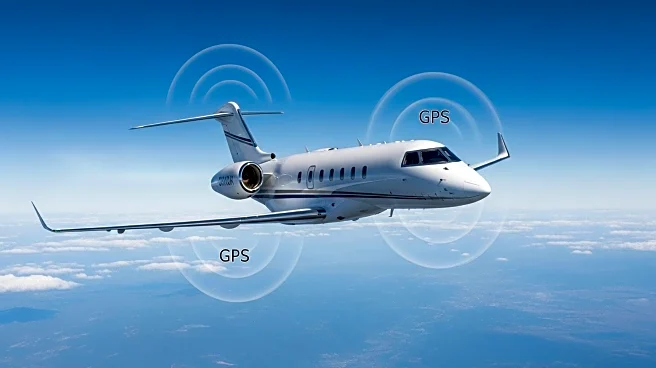What's Happening?
Ursula von der Leyen, President of the European Commission, encountered suspected GPS jamming on her plane while visiting Bulgaria. The incident occurred as von der Leyen was arriving in southern Bulgaria, forcing the plane to land at Plovdiv Airport using paper maps instead of electronic navigation systems. The European Commission suspects Russian interference, citing threats and intimidation as regular components of Russia's hostile actions. The Bulgarian government confirmed the disruption of the satellite signal to the plane's GPS navigation system. Despite the interference, von der Leyen landed safely and continued her tour of eastern EU states to discuss defense readiness.
Why It's Important?
The suspected GPS jamming incident underscores ongoing tensions between the European Union and Russia, particularly in the context of defense and security. Such interference highlights vulnerabilities in aviation navigation systems and raises concerns about the safety of air travel in regions close to Russia. The event may prompt the EU to further enhance its defense capabilities and support for Ukraine, as von der Leyen's visit aimed to reinforce solidarity among member states bordering Russia and Belarus. The incident also reflects broader geopolitical challenges, including hybrid warfare tactics employed by Russia, which could impact international relations and security policies.
What's Next?
The European Commission is likely to investigate the GPS jamming incident further, potentially leading to increased security measures for EU officials traveling in regions near Russia. The EU may also consider strengthening its defense strategies and economic sanctions against Russia in response to ongoing threats. Additionally, von der Leyen's tour of eastern EU states will continue, focusing on defense readiness and solidarity among member states. The incident may also prompt discussions on improving aviation security and navigation systems to prevent similar occurrences in the future.
Beyond the Headlines
The GPS jamming incident raises ethical and legal questions about the use of technology in geopolitical conflicts. It highlights the need for international cooperation to address cybersecurity threats and protect civilian infrastructure from hostile actions. The event may also influence long-term shifts in EU-Russia relations, potentially leading to increased diplomatic tensions and efforts to counteract Russian influence in Eastern Europe.










